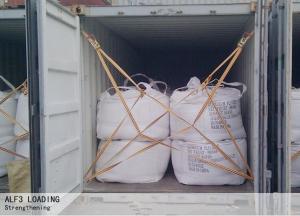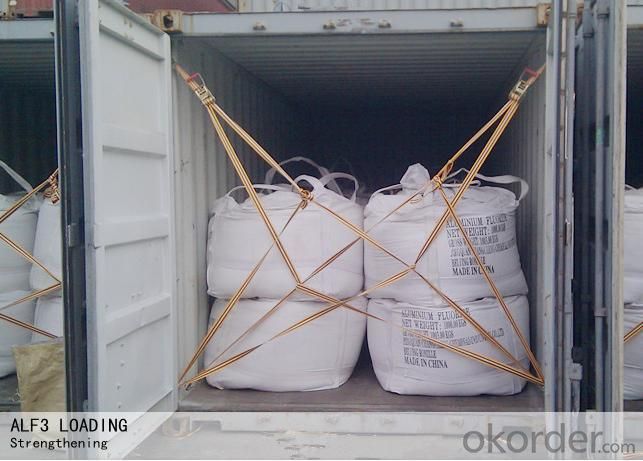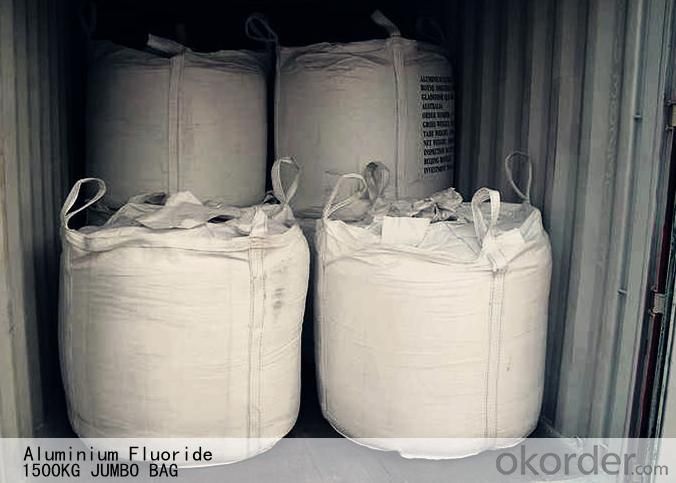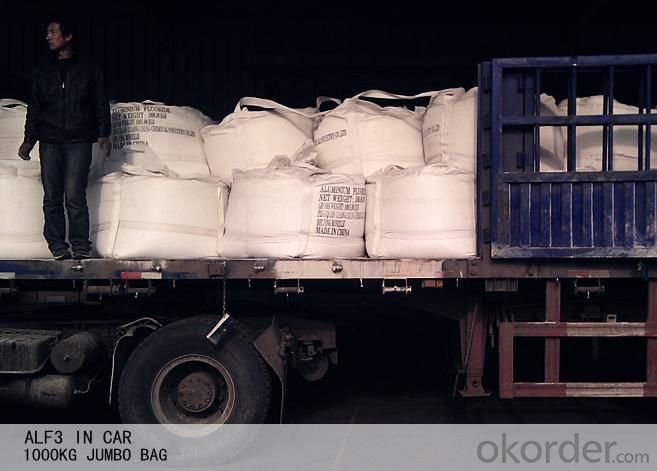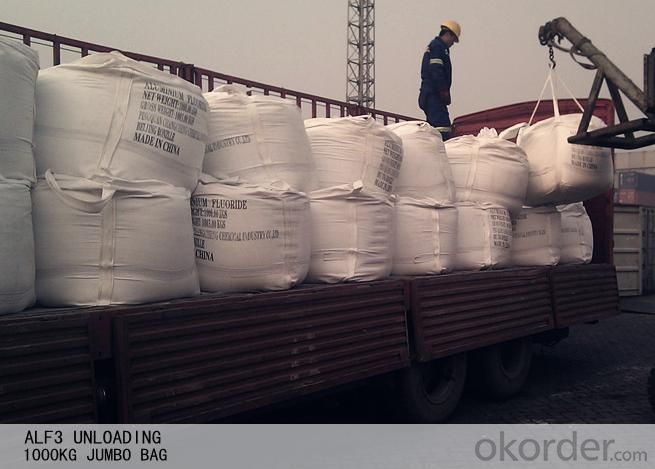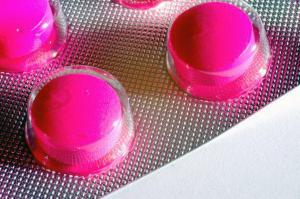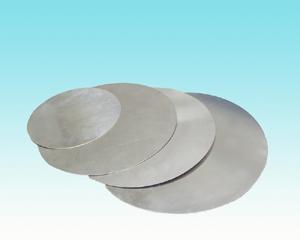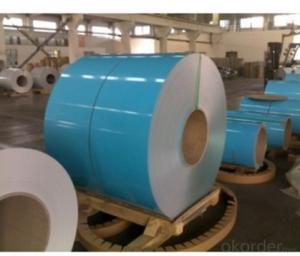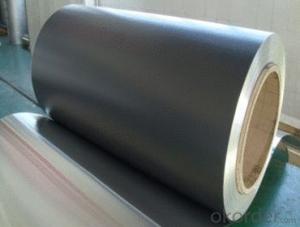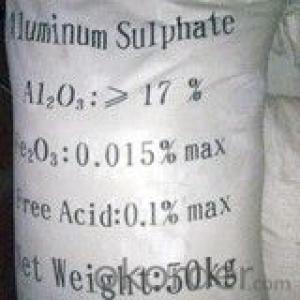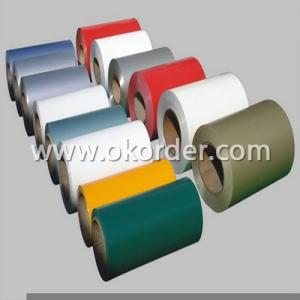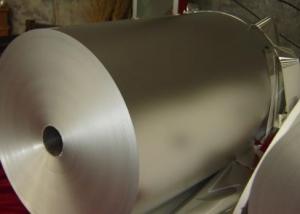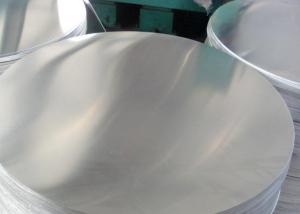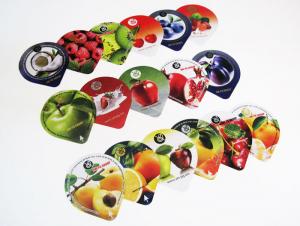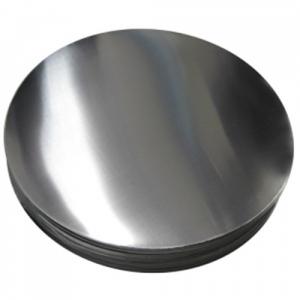Aluminum Anhydrous High Bulk Density Aluminium Fluoride
- Loading Port:
- Xingang
- Payment Terms:
- TT or LC
- Min Order Qty:
- 20mt m.t.
- Supply Capability:
- 30,000mt m.t./month
OKorder Service Pledge
OKorder Financial Service
You Might Also Like
Aluminum Fluoride Anhydrous High Bulk Density
Aluminum is a very versatile metal which is used as construction material in buildings and transportation equipment as well as in consumer goods packages. Aluminum Fluoride (AIF3), is primarily used in the production of aluminum.
Aluminum Fluoride is a critical additive to the molten electrolyte in aluminum metal production. Adding AIF3 allows the electrolytic process to take place at a temperature around 8500C, which is considerably lower than the melting point for aluminum oxide (Al2O3, mp ca. 1,5000C). As a result of its temperature-lowering properties, ALF3 has a definite energy saving effect. Consequently, primary aluminum smelters are the biggest users of Aluminum Fluoride. The high purity of our product contributes to our customers' ambitions towards a pure end-product.
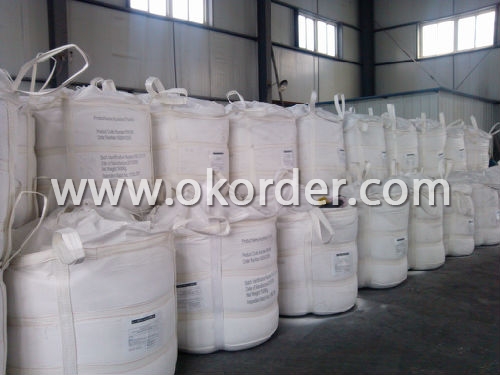
Usage of Aluminum Fluoride Anhydrous High Bulk Density
Additive to aluminium smelter, also, it is a flux for non-ferrous metal, as a zymotic inhibitor in the alcohol and essential oil production and as a fusing assistant for ceramic, enamel and the component of glaze.
Manufacturing Technique of Aluminum Fluoride Anhydrous
Vitriol reacts with Fluorite to create the Hydrogen Fluoride Gas and Anhydrous Fluoride Plaster by heating, then the Hydrogen Fluoride Gas react with dry Aluminum Hydroxide in Fluidized Bed to create to Aluminum Fluoride anhydrous.
Reaction Principle of Aluminum Fluoride Anhydrous
CAF2 + H2SO4 = 2HF + CASO4 →AL(OH)3 + 3HF = ALF3 + 3H20
Methods of Test of Aluminum Fluoride Anhydrous High Bulk Density
Measuring method of chemical analysis and physical properties for aluminum fluoride should accord to YS/T581 or ISO2362ect.
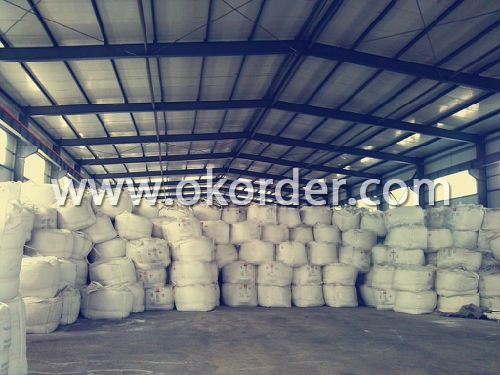
Test Report of Aluminum Fluoride Anhydrous High Bulk Density
SGS, Intertek, Inspectorate, etc.
Packing of Aluminum Fluoride Anhydrous High Bulk Density
In 25kg/50kg/1000kg/1250kg/1500kg double layers plastic woven bags/jumbo bag/ paper bags, pallet or no pallet.
Store and Transportation of Aluminum Fluoride Anhydrous
Store in a cool, dry, well-ventilated warehouse away from incompatible substances. Prevent heat, damp and rain during the transportation. Handle with care, avoid breaking bags.
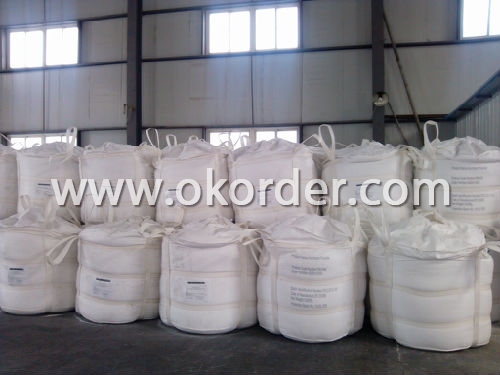
Standard of Aluminum Fluoride Anhydrous High Bulk Density
Chinese smelters refer to National standard (GB/T 4292-2007). World's smelters specification is available on your request.
Brand No. | Chemical Constituent(mass fraction)% | Physical Properties | |||||||
F | Al |
Na
|
SiO2
|
Fe2O3
| SO42- | P2O5 | Loss of Ignition | Apparent Density(g/cm3) | |
≥ | ≤ | ≥ | |||||||
AF-0 | 61.00 | 31.50 | 0.30 | 0.10 | 0.06 | 0.10 | 0.03 | 0.50 | 1.50 |
AF-1 | 60.00 | 31.00 | 0.40 | 0.30 | 0.10 | 0.60 | 0.04 | 1.00 | 1.30 |
AF-2 | 58.00 | 29.00 | 2.80 | 0.30 | 0.12 | 1.00 | 0.04 | 5.50 | 0.70 |
AF-3 | 58.00 | 29.00 | 2.80 | 0.35 | 0.12 | 1.00 | 0.04 | 5.50 | 0.70 |
- Q: What is the advantage of the aluminum mine in the Yangtze River than other aluminum products?
- I am familiar with Nanshan material, no matter whose products have their respective advantages and disadvantages.
- Q: Is it possible to repurpose or reuse old aluminum foil for various uses?
- <p>Yes, old aluminum foil can be repurposed for various uses. It can be recycled, used as a makeshift scrubber for cleaning, or as a reflector for grilling. You can also use it to cover food for storage or as a barrier in gardening to deter pests. However, it's important not to reuse foil that has held acidic or sugary foods, as it can corrode and release aluminum into the food. Always ensure the foil is clean and in good condition before repurposing.</p>
- Q: This question asks for a comparison between aluminum and other metals, highlighting their distinct properties and characteristics.
- <p>Aluminum is a lightweight, corrosion-resistant metal with a low density, making it ideal for applications requiring strength without excessive weight. It is also a good conductor of heat and electricity. Unlike other metals like iron or copper, aluminum is not magnetic and has a lower melting point. It is also more abundant and cheaper to produce than many other metals, which makes it widely used in industries such as construction, transportation, and packaging. Aluminum's reactivity means it forms a protective oxide layer when exposed to air, which prevents further corrosion. In contrast, metals like stainless steel offer greater strength and resistance to corrosion, while copper has superior electrical conductivity. Each metal has its unique properties that make it suitable for specific applications.</p>
- Q: Is it possible to use pure aluminum to create tools and equipment with increased longevity?
- <p>Pure aluminum is not typically used for making tools and equipment that require durability and strength. While it is lightweight and corrosion-resistant, pure aluminum is relatively soft and lacks the strength needed for most tools and equipment. Alloys of aluminum, which combine aluminum with other elements like copper, magnesium, or silicon, are often used instead. These alloys offer improved strength, hardness, and wear resistance, making them more suitable for long-lasting tools and equipment.</p>
- Q: What is the reaction of aluminum with alkaline solutions and what products are formed?
- <p>Aluminum reacts with alkaline solutions in a process known as an acid-base reaction. When aluminum comes into contact with an alkaline solution, such as sodium hydroxide (NaOH), it forms sodium aluminate (NaAlO2) and hydrogen gas (H2). The reaction can be represented by the following chemical equation: 2Al + 2NaOH + 6H2O 鈫?2NaAl(OH)4 + 3H2. In this reaction, aluminum acts as an acid, donating protons to the hydroxide ions (OH-) from the alkaline solution, resulting in the formation of a salt and hydrogen gas.</p>
- Q: This question asks for a list of typical flaws or imperfections that can occur in aluminum products.
- <p>Common defects in aluminum products include porosity, which refers to small holes or voids within the material; surface defects such as scratches, dents, and discoloration; mechanical defects like warping or deformation; and metallurgical defects such as inclusions or impurities. Additionally, aluminum products can suffer from corrosion, which can lead to pitting or general surface degradation, and stress corrosion cracking, which occurs under certain environmental conditions and stress. Each of these defects can impact the structural integrity, appearance, or performance of aluminum products.</p>
- Q: What are the elements that make up aluminum oxide and what is its chemical formula?
- <p>Aluminum oxide is composed of aluminum and oxygen. Its chemical formula is Al2O3, indicating that it consists of two aluminum atoms (Al) and three oxygen atoms (O). This compound is a widely used industrial material, known for its high melting point and hardness.</p>
- Q: What are the various applications of aluminum in the construction industry?
- <p>Aluminum is widely used in construction due to its lightweight, durability, and resistance to corrosion. It is utilized in the manufacturing of window frames, doors, roofing, and facades for its strength and low maintenance requirements. Aluminum is also used in structural components such as beams and columns, and in the construction of bridges and high-rise buildings. Its malleability allows for easy shaping and forming, making it ideal for intricate designs. Additionally, aluminum's thermal conductivity and reflectivity make it suitable for energy-efficient construction.</p>
- Q: Explain the various applications of aluminum in the construction industry.
- <p>Aluminum is widely used in building materials due to its lightweight, high strength, and corrosion resistance. It's utilized in window frames, doors, curtain walls, and roofing systems for its durability and energy efficiency. Aluminum's malleability allows it to be shaped into various forms, making it ideal for facades and decorative elements. It's also used in structural components like beams and columns, and in electrical wiring due to its excellent conductivity. Additionally, aluminum's sustainability makes it a preferred choice in green building practices, as it's recyclable and has a low environmental impact.</p>
- Q: This question asks for recent applications of aluminum in contemporary society.
- <p>Aluminum has found new uses in modern society across various sectors. In the automotive industry, it is used to manufacture lightweight vehicles for fuel efficiency and reduced emissions. In construction, aluminum is utilized for building facades, window frames, and roofing due to its durability and low maintenance. The aerospace industry also relies on aluminum for aircraft construction because of its strength-to-weight ratio. Additionally, aluminum is used in electronics for heat sinks and casings, and in the packaging industry for food and beverage cans. It's also gaining traction in the energy sector, particularly in battery technology for electric vehicles and renewable energy storage solutions.</p>
1. Manufacturer Overview
| Location | Nanning, Guangxi Province,China |
| Year Established | 2005 |
| Annual Output Value | Below US$1 Million |
| Main Markets | Mid East;Australia;India;Japan;Korea |
| Company Certifications | ISO 9001:2008; |
2. Manufacturer Certificates
| a) Certification Name | |
| Range | |
| Reference | |
| Validity Period |
3. Manufacturer Capability
| a) Trade Capacity | |
| Nearest Port | Xingang |
| Export Percentage | 51% - 60% |
| No.of Employees in Trade Department | 18 People |
| Language Spoken: | English;Chinese |
| b) Factory Information | |
| Factory Size: | Above 800,000 square meters |
| No. of Production Lines | Above 2 |
| Contract Manufacturing | |
| Product Price Range | Average |
Send your message to us
Aluminum Anhydrous High Bulk Density Aluminium Fluoride
- Loading Port:
- Xingang
- Payment Terms:
- TT or LC
- Min Order Qty:
- 20mt m.t.
- Supply Capability:
- 30,000mt m.t./month
OKorder Service Pledge
OKorder Financial Service
Similar products
Hot products
Hot Searches
Related keywords
